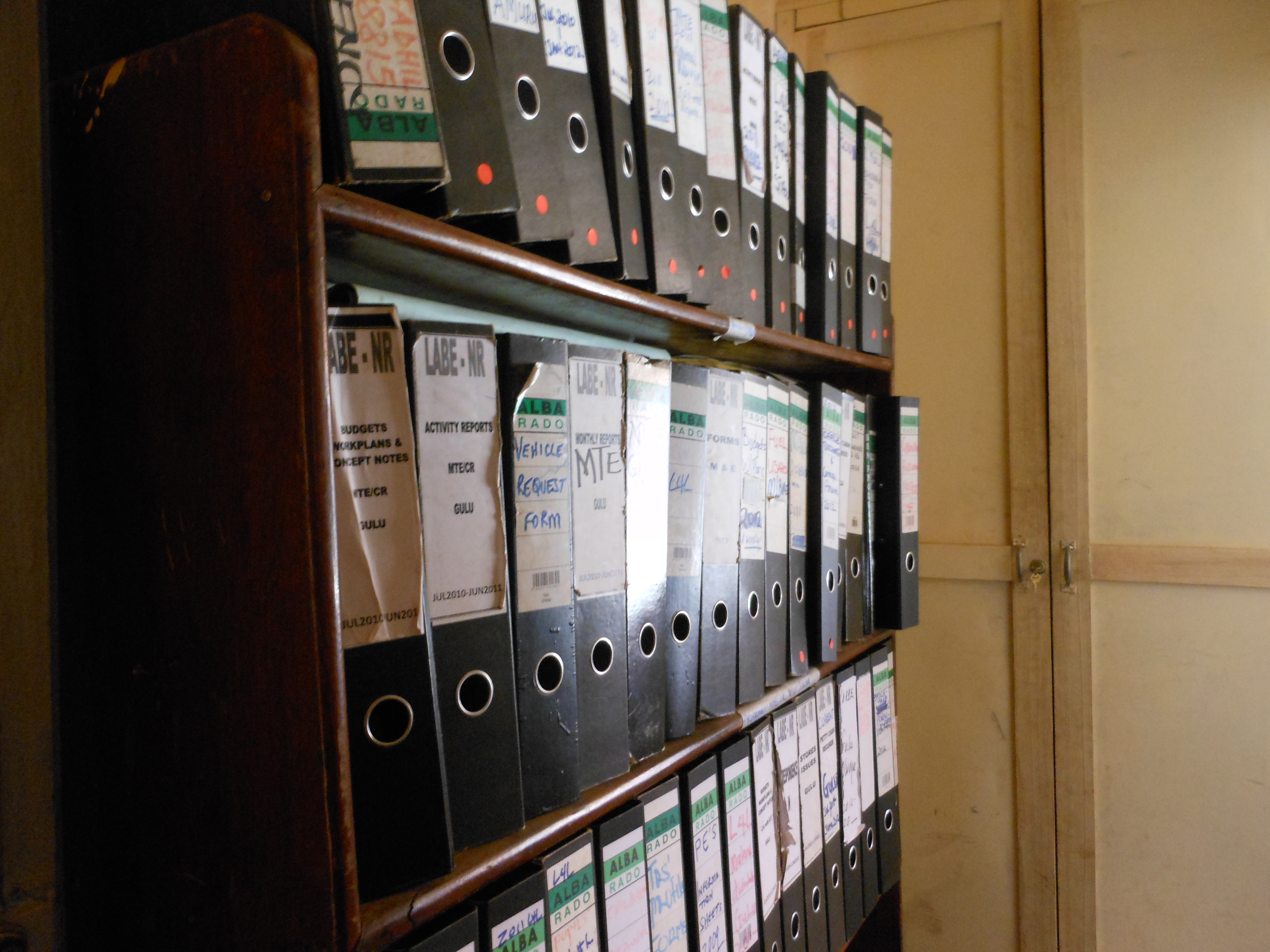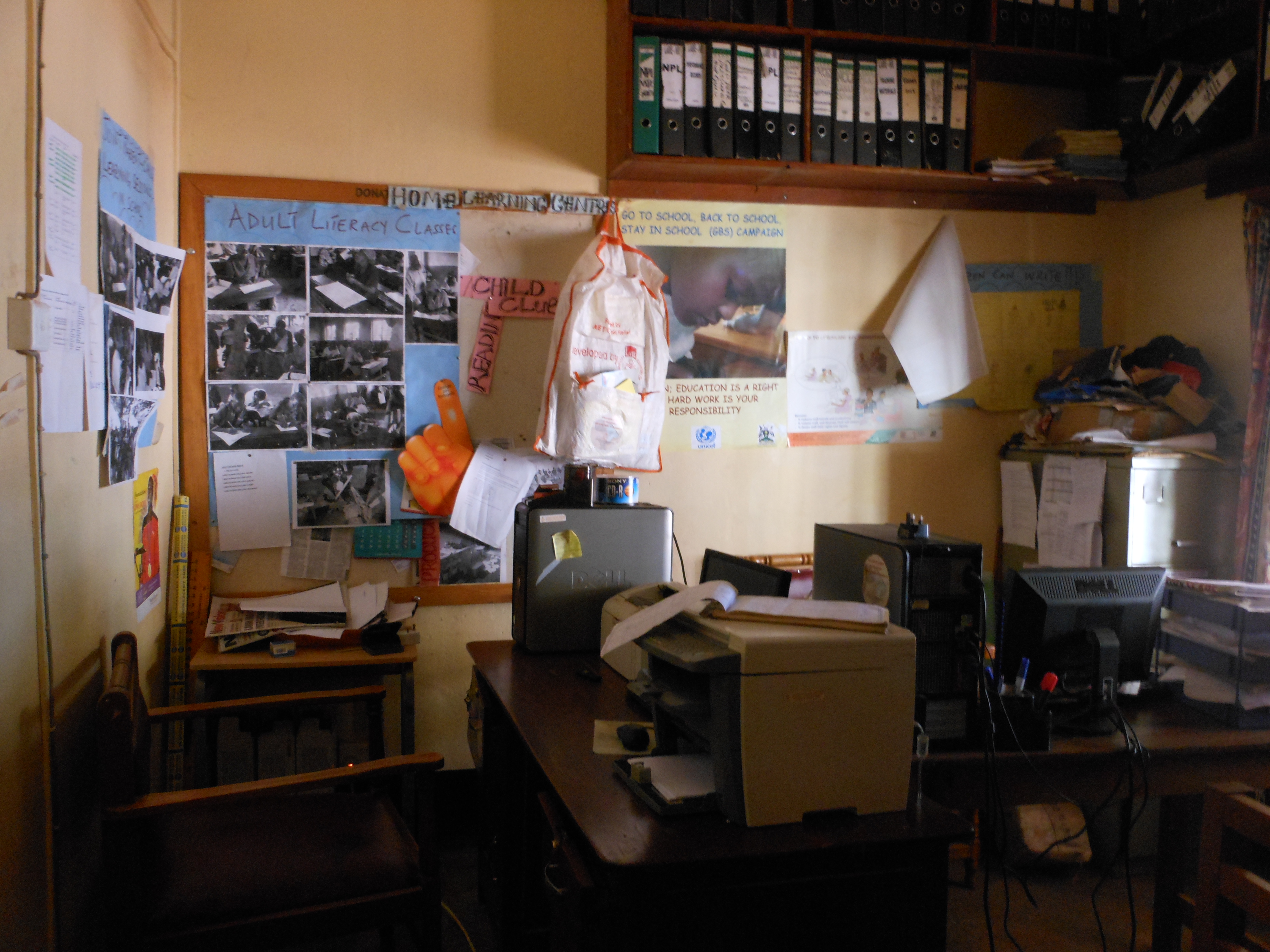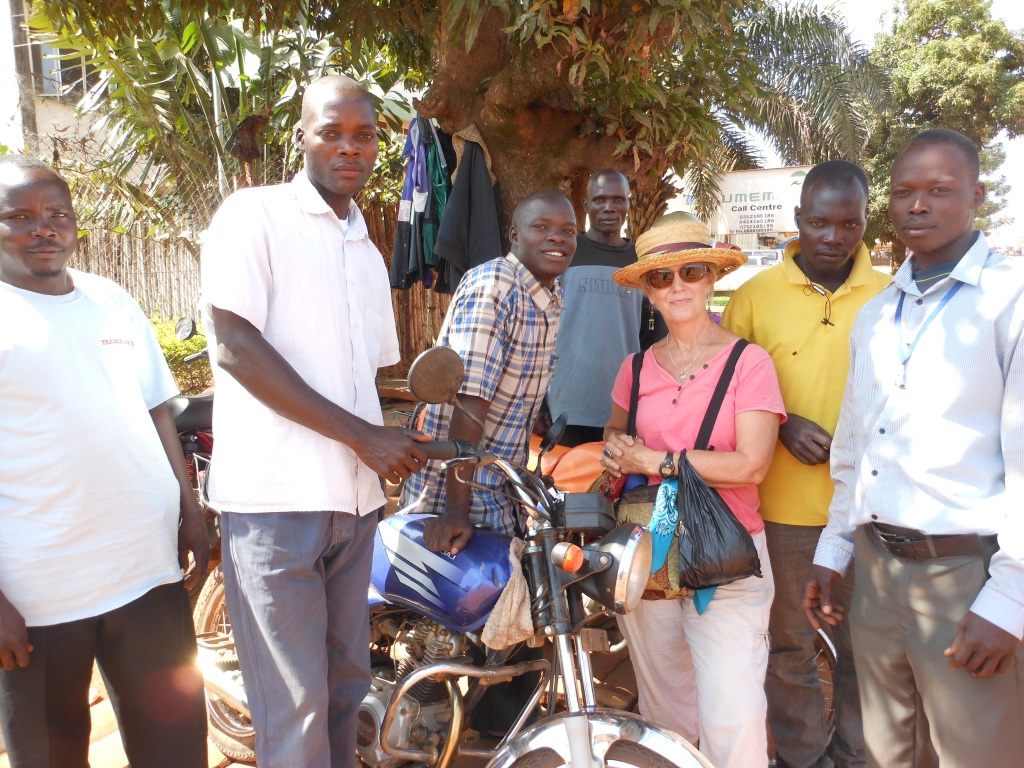TGIF – don’t know why that would make a particular difference, but it does. It means I have a weekend to be with friends, not feel guilty about not being productive (still learning the ropes at the organization) and get hand laundry done. Amazing how fast things get dirty here – just putting them on and walking to work has myriad opportunities. It has rained a lot in the past few days so mud abounds.

The excitement of the day is that I now have “cream” for my coffee. Remember – no refrigeration, so creme has arrived in a huge jar of CoffeeMate – a substance I wouldn’t have touched in the States, now brings a taste “home” because, in spite of its chemical composition, still is reminiscent of cream. It was ordered for me by the Indian supermarket owner and it’s a lifetime supply – costing about $10 US. May the Hindu gods bless him.

My days thus far involve learning what my organization is all about. In part, that’s being accomplished by going through huge binders of documents and organizing files. Technically, I know this, but what I’m really learning now is who everyone is, what they do, the real nuts and bolts of the operation. We are cautioned not to start offering our ideas about what is needed for a few months and for good reason. Westerners tend to come with a lot of ideas about how to “fix” things and this is both good and bad. Good because we have a lot of problem solving and conceptual skills that are useful and indeed requested. Bad, because often our ideas for what we think is needed have nothing to do what is really productive and beneficial at a core level.
So – many projects are begun and not continued after the originator leaves because the project is either not serving their basic needs or the staff have not been trained to manage it. For the first few months we learn, observe, ask questions about what the locals see as their challenges, observe what’s in place and what’s not.

l love this process, because it’s so much of what I did in my practice at home and it comes naturally. The office to the right is ground-zero for our group of five and the program generates a ton of paperwork, so I’ve got lots to work with.
I’s all mental work and does run contrary to our individual and collective need to “be productive, be busy.” This is the “shut up and listen” phase.
That’s probably a good thing from other perspectives as well. I am flat out exhausted by about mid-day and if I had to be more productive, this could be a problem. I wonder at this since I’m usually full-on at home. But the newly minted volunteer here is like a fresh battery plugged into a device that requires more juice than it has to offer – so it’s depleted fast. Yes I am older that the average volunteer, but they have similar reports. I realize that all systems have to be fully engaged at all times – here’s the day.
- Wake up after minimal sleep because the music and noise never stop. Take some drugs for the sinus infection that is brewing due to the dust and toxic fumes coming from charcoal fires and burning tires/plastics.
- Dress professionally, while coughing – a chronic tickle has developed due to the aforementioned. Dress smart in spit of the fact that the electricity is now off and one cannot iron and – there’s all that mud to go through. Still – Ugandans somehow manage to look crisp at the office and in general are more put together than makes sense. Over time, I will learn their tricks. I am NOT going to use a charcoal iron, however. But I’ll learn take advantage of electricity and devise a makeshift ironing board. This requires going to the market and finding an extra pair of sheets, etc. to put on the floor. How to say sheets in Acholi – what size – they need to fit the bed.
- Walk the 1.5 miles to work while constantly scanning – aware that human life on the streets takes a backseat to anything motorized or on wheels. (Oops! Didn’t hear that bike coming as it brushes my skirt in passing just before throwing mud up my leg. And oh s—, where did that bus come from? Oh yes – the other direction…) This is an incredible busy town with humanity, bodas, NGO vehicles, rumbling trucks, handmade wheel barrows, bicycles and the occasional herd of goats traveling in all directions.

- Continue walking, greeting people in a language you haven’t yet mastered and explain to at least 50 boda drivers – at stages like the one to the right – that you are “not permitted” to ride a boda. Engage in a conversation with an adorable school girl who wants to chat and tells you she wants to be seen walking with you. This is lovely and I am truly honored, but now I’m afraid we’ll BOTH be run over!
- Walk the 1.5 miles to work while constantly scanning – aware that human life on the streets takes a backseat to anything motorized or on wheels. (Oops! Didn’t hear that bike coming as it brushes my skirt in passing just before throwing mud up my leg. And oh s—, where did that bus come from? Oh yes – the other direction…) This is an incredible busy town with humanity, bodas, NGO vehicles, rumbling trucks, handmade wheel barrows, bicycles and the occasional herd of goats traveling in all directions.
- Continue walking, greeting people in a language you haven’t yet mastered and explain to at least 50 boda drivers that you are “not permitted” to ride a boda. Engage in a conversation with an adorable school girl who wants to chat and tells you she wants to be seen walking with you. This is lovely and I am truly honored, but now I’m afraid we’ll BOTH be run over!
- Arrive at work and greet your new friends. Try to do this in Acholi… They are wonderful and so eager to help me learn Acholi. They are patient and I think excited to have me there, but I’m not sure. The language lessons begin. This is a good thing because I NEED to learn. It’s stressful because they are a VERY soft spoken lot and there is always noise. HOW do they hear each other??? No, I am not deaf. But I understand a few words. Language learning is stressful … necessary and did I say stressful?
- Run to the latrine, because whatever you are eating has your stomach unhappy. The latrine is essentially a block away, through a back alley, smells (and it belongs to the health department) and you’d better bring your own toilet paper.)
- Well – that’s the first hour. Repeat until about 2:30. Return home via the market or grocery store. Maybe get something to eat, because you still have no stove. Check at all four gas stations to see WHEN they might get gas for the stove (dodging the 10-15 vehicles jockeying for space at the pumps or just waiting for a passenger).
- Arrive home, asking the landlord if she has contacted the plumber yet, because the toilet (lucky to have one) is still leaking all over the floor. It has not healed itself in the last three days. Walk up three flights of tilting backwards stairs and collapse, hoping the electricity comes on because you could sure use a fan right now.
So – this picture will change as time passes and I get more things in place, but it’s good to have coping skills, a Kindle with several hundred books on it, a computer for contact with home and the random DVD of Burn Notice, Costco Sleepaid, Benadryl, friends and the occasional chocolate bar.
Note: I am now home at the end of this day, having crashed into a coma-like state for about an hour, after putting some eggs to boil in the electric kettle while there is electricity. Still no propane for the stove I bought. I’ve hiked into town, had some very good Lebonese food with friends and hiked back in the rain just as dark fell. Not good to be out after dark here… So there is life out there and friends make it possible.
I’ve taken my weekly Malaria pill (Mefloquin), famous for producing vivid and sometimes bizarre dreams – so we’ll see what comes my way 😉 May it be a good one! Now on to read Paulo Coelho’s “Valkyries.” Love his stuff – just finished “The Witch of Portobelo.” Lots of reading here…
N
